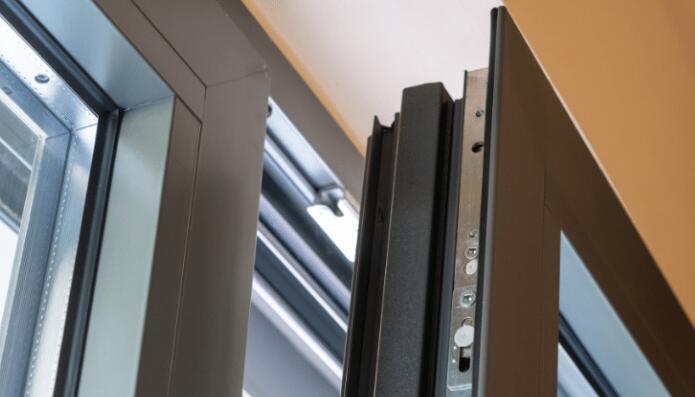Aluminum window profiles are a popular choice in modern architecture, valued for their strength, durability, and versatility. They have become a go-to option for both residential and commercial properties due to their resilience and sleek aesthetic. This article will address common questions about aluminum window profiles, exploring their durability, maintenance needs, environmental impact, and more.

Aluminum windows are known for their exceptional durability, with a lifespan of 25 to 50 years or more, depending on the local climate and the level of care they receive. Unlike wooden frames, which are susceptible to rot, warping, and insect damage, aluminum can withstand high winds, heavy rain, and even seismic activity, making it an excellent choice for buildings in harsh environments. Additionally, high-quality aluminum frames are often treated with protective coatings that add to their longevity, helping them retain their strength and appearance over decades.
One of the key advantages of aluminum windows is their low maintenance requirements. Unlike wood, which may need regular repainting or sealing to prevent decay, aluminum frames typically only need occasional cleaning to stay in top condition. A mild detergent and water solution, combined with a soft cloth or sponge, is usually enough to clean the frames and remove any dust, dirt, or grime. To keep the windows operating smoothly, it's also recommended to lubricate any moving parts, such as hinges and sliders, a few times a year. By following these simple steps, you can ensure your aluminum windows remain attractive and functional for years.
A common misconception is that aluminum, like steel, is prone to rust. While it doesn't rust in the same way as iron-based materials, aluminum can corrode under certain conditions. However, this can be easily prevented through surface treatments. Powder coating, a popular protective finish, involves applying a layer of powdered pigment and resin to the aluminum frame, which is then baked to create a durable, weather-resistant layer. Anodizing is another effective method that increases the thickness of the natural oxide layer on the aluminum surface. This added layer acts as a shield against moisture, salt, and other elements that could lead to corrosion, ensuring that aluminum windows maintain their appearance and integrity over time.
Aluminum is prized for its lightweight properties, which make it versatile and easy to work with in window design. This material's low weight doesn't compromise its strength, which allows for thinner frames and larger glass panels. Architects and designers appreciate this flexibility, as it enables them to create sleek, modern window designs that maximize natural light and provide unobstructed views. Moreover, the light weight of aluminum frames also means they are easier to transport and install, reducing both labor and shipping costs.
Aluminum is one of the most environmentally friendly materials used in window manufacturing, as it is 100% recyclable. Recycling aluminum requires only a fraction of the energy needed to produce new aluminum from raw materials, making it a sustainable option for environmentally conscious consumers. When old aluminum windows reach the end of their life, they can be fully recycled without losing their structural qualities. By choosing aluminum windows, you're opting for a product that contributes to a circular economy and reduces the demand for new resources.
In terms of cost, aluminum windows sit in the middle range compared to other materials like wood, fiberglass, or vinyl. They are generally more affordable than wood, which requires extensive processing and treatment, and can be more cost-effective than high-end fiberglass options. While they may be pricier than vinyl, the long-term durability and low maintenance requirements of aluminum often make it a more economical choice over time. By investing in aluminum windows, you can benefit from a high-quality material that offers a great balance between cost and performance.
Delivery times for aluminum windows can vary based on the location and the chosen delivery method. Factors such as customizations, coating options, and production schedules also influence lead times. To get an accurate estimate for your project, it's best to consult with Golden Jash. Golden Jash offers flexible shipping options to accommodate different timelines, ensuring your order arrives when needed.
If you notice a small chip or scratch on the paint of your aluminum window frame, you can easily touch it up. The best way to ensure a seamless finish is to match the original powder coat shade. Many manufacturers offer touch-up kits or can recommend a compatible paint for repairs. With proper application, touch-up paint can restore the frame's appearance without affecting its durability or corrosion resistance.
Aluminum windows offer a blend of durability, low maintenance, and sustainability that makes them an appealing choice for various building types. Their resistance to the elements, minimal upkeep, and recyclable nature underscore their value as a modern, eco-friendly building material. If you're considering aluminum windows for your next project, consult with a trusted supplier for information on customization options, delivery timelines, and maintenance tips. Feel free to contact us for any additional details or to discuss how aluminum windows can meet your specific needs.
Previous: None
Sign up to receive our newsletter and exclusive discounts and offters.